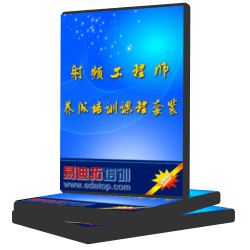- 易迪拓培训,专注于微波、射频、天线设计工程师的培养
分析:三大热门买家竞逐英飞凌无线业务部
Intel seen as likely buyer for Infineon group
by Rick Merritt
Intel is the most likely buyer for Infineon's wireless business now up for sale, though Broadcom is a better fit and Samsung is clearly interested, according to market watcher Will Strauss.
Infineon said earlier this week it is making progress in discussions to sell its wireless group which generated about $1.2 billion in sales last year. That represents about a third of total revenues at Infineon which is seeking to focus on its larger and more profitable automotive chip business.
"I'd like to see Broadcom get it, but it would be a financial strain for them," said Strauss, principal of Forward Concepts (Tempe, Ariz.). "Broadcom probably understands the [wireless] market better than Intel does now or will anytime soon," he said in an interview.
Intel has the financial resources to acquire the Infineon chip unit, especially now that it has ended a long standing antitrust investigation from the U.S. Federal Trade Commission without being slapped with a fine. Intel is hungry to get into the smartphone business with its Atom processor and related SoCs, but to date has lacked much of the silicon surrounding a cellular applications processor.
The prize is a rich one because Infineon supplies 3G cellular modems and RF transceivers to all Apple iPhones and iPads. Strauss said Apple represents as much as 40 percent of the Infineon group's business.
That could be a big boost for Broadcom which sells Wi-Fi and Bluetooth chips to Apple and others, but has a small share of the 3G baseband business overall, Strauss noted. Apple shifted to Intel for all its computer processors, but so far has used ARM-based chips from Samsung and others in its mobile systems.
Samsung, another company expected to be in the bidding, is a less suitable suitor for Infineon. That's because it is a top provider of cellphones in the U.S. and elsewhere, making it an unlikely source of handset silicon for top competitors such as LG Electronics and Nokia, Strauss said.
Nokia is the world's largest handset maker with 2009 revenues of $54.4 billion, according to the latest report from Forward Concepts. Samsung is a distant second at $25.9 billion, LG is third at $14.9 and Apple is a close fourth at $13.8 billion, the report said.
The shares are likely to shift with Apple leading the pack with 83 percent growth last year. LG was sixth in growth at 21 percent followed by Samsung at ninth with 16 percent growth. Nokia saw its share shrink about eight percent last year, the report said.
Samsung has the financial resources to buy the Infineon group. If it did it could surpass Intel to become the world's largest chip maker in revenues and cement its standing outside memory chips in the rapidly growing market for mobile silicon. That could galvanize the already rising competition between Intel and Samsung as semiconductor rivals.
Small LTE baseband companies could feel the pinch if Intel buys the Infineon group because it includes the Comneon unit which licenses 3G software, Strauss said. "Intel has never entertained the licensing model as part of its chip business and would likely shutter the Comneon operation, just as Motorola did after they purchased TTPCom's 3G licensing business," Strauss wrote in his newsletter.

